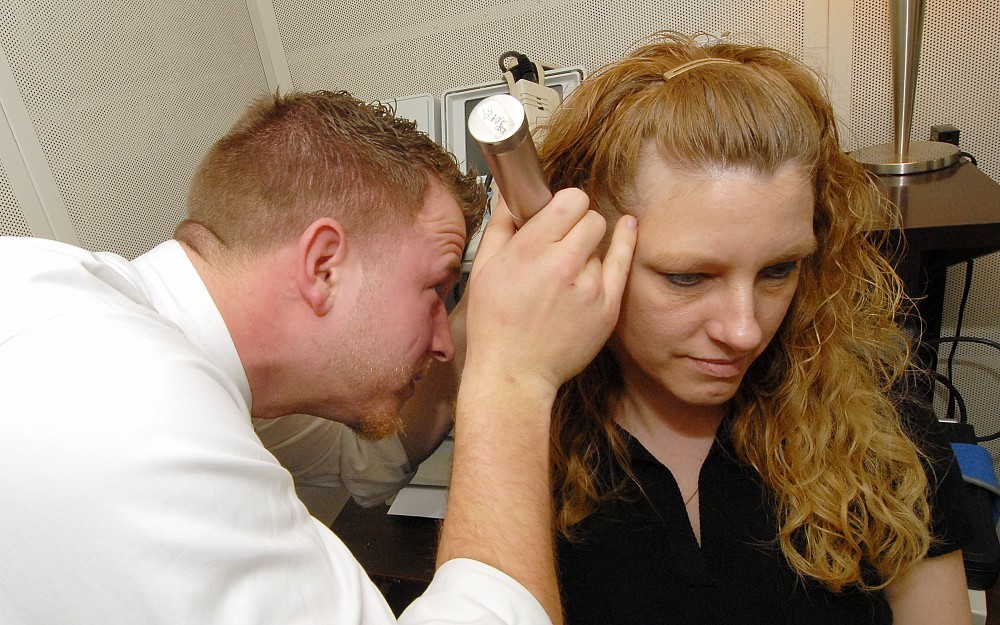
UC HEALTH LINE: Free Screenings Can Detect Hearing Loss
CINCINNATIHearing loss doesnt just happen to people as they age. It can be caused by listening to loud music, ear infections and heredity, among other factors. And one of the easiest ways to know if your hearing is within the normal range is to be screened by an audiologist.
That is why audiologists at the University of Cincinnati (UC) are offering free hearing screenings on Friday, May 18, from 9 a.m. to 4 p.m.
People rely heavily on their hearing not just to communicate, but also to hear sounds related to their safety, such as alarms, sirens and car horns, says Julie Honaker, PhD, director of audiology in the UC Department of OtolaryngologyHead and Neck Surgery. So its especially important to have your hearing checked.
And she points out that people with mild to moderate hearing loss may not even realize it.
The majority of hearing loss develops slowly over time, Honaker says. More than 30 million Americans have some degree of hearing loss, and about one-third of these cases are due to noise exposure.
Honaker says hearing loss from noise exposure is the single most preventable type of hearing loss. She cautions people not to listen to music thats too loud and to wear ear protection, such as ear plugs or muffs, when using lawnmowers, power tools and heavy machinery.
Loud noises damage the cochlear hair cells and nerves in your inner ear, says Honaker. And when theyre damaged, you cant undo it and you will experience hearing loss.
People differ in their sensitivity to noise, says Honaker, but as a general rule, noise can damage your hearing if you have to shout to be heard or noise makes your ears hurt or ring.
During a hearing screening, audiologists ask patients about their hearing history and visually examine the external auditory canals and eardrum with an otoscope. They also place headphones or small ear plugs into the patients ear and instruct them to press a button when they hear a beeping tone. These measures allow audiologists to determine if a patient needs a comprehensive hearing test to evaluate the type and severity of the hearing loss and to develop a treatment plan.
To schedule a hearing screening at UC, call (513) 475-8453.
More information on hearing loss is available at www.netwellness.org, a collaborative health-information Web site run by UC, Case Western Reserve University and Ohio State University and staffed by Ohio physicians, nurses and allied health professionals.

Julie Honaker, director of audiology in the UC Department of Otolaryngology Head and Neck Surgery
Tags
Related Stories
Can new rules in Ohio address a pharmacy staffing shortage and...
May 17, 2024
The University of Cincinnati's Michael Hegener joined WVXU's Cincinnati Edition to discuss recent rules released by the Ohio Board of Pharmacy designed to address pharmacy staffing.
Is ketamine the answer to treatment-resistant depression?
May 16, 2024
The University of Cincinnati's Stephen Rush joined WVXU's Cincinnati Edition to discuss the use of ketamine and esketamine to treat treatment-resistant depression.
UC study: Severe ischemic strokes rare in total patient...
May 15, 2024
The University of Cincinnati’s Yasmin Aziz will present research at the European Stroke Organisation Conference that found severe ischemic strokes with the most severe damage are rare in the total stroke patient population.
